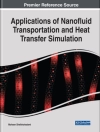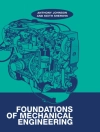An exploration of the technical, economic, and energy-saving aspects of the design, modeling, and operation of non-conventional cooling and heating systems
Cooling and heating can collectively constitute one of the largest sources of energy consumption in a modern building, with attendant costs and sustainability concerns. As the global climate changes and temperature extremes produce demand for even greater energy consumption, energy-efficient methods for cooling interior spaces have become more important than ever. Our sustainable future demands non-conventional methods for cooling and thermal storage which can meet the demands of a changing climate and an efficient, renewable power grid.
Advancements in Non-Conventional Cooling and Thermal Storage Strategies offers a detailed introduction to the latest cutting-edge space conditioning technologies for buildings. Beginning with an overview of activated carbon-based adsorbents and their potential heating and cooling applications, it moves to an analysis of Phase Change Materials (PCMs) as a potential sustainable cooling source. Thorough, rigorous, and fully up to date, it’s indispensable for a range of professionals working to make habitable, energy-efficient human spaces.
Advancements in Non-Conventional Cooling and Thermal Storage Strategies readers will find:
- Techniques for both active and passive space conditioning systems
- Detailed discussion of topics including adsorbent-refrigerant pairings, techniques for incorporating fresh air at high air change per hour, and more
- A composite case study with examples from across the globe to provide an understanding of technical requirements
Advancements in Non-Conventional Cooling and Thermal Storage Strategies is ideal for researchers and professional mechanical and civil engineers, those working in space-cooling, HVAC, and building design industries, and research and design personnel of HVAC equipment manufacturing industry.
Tabela de Conteúdo
Table of contents
1. Introduction to advancements in non-conventional cooling and thermal storage strategies: technologies for more sustainable space conditioning
Animesh Pal, Bidyut Baran Saha, Dibakar Rakshit
2. Potential assessment of hydrofluoro refrigerant based adsorption cooling systems
Sai Yagnamurthy, Md. Amirul Islam, Bidyut Baran Saha, Dibakar Rakshit
3. Optimal utilization of waste biomass for the development of minimal emission sustainable cooling systems
Md. Amirul Islam, Bidyut Baran Saha
4. Functionalization on metal-organic frameworks to enhance water adsorption uptakes and kinetics for cooling applications
Bo Han, Anutosh Chakraborty
5. Ammoniated salts based gas-solid sorption devices
Rakesh Sharma, E. Anil Kumar
6. Thermochemical energy storage systems
Pradip Dutta, Akshay Chate, Kartik Jain, Susmita Dash
7. State-of-charge estimation of thermal energy storage units
Carlos E. Ugalde-Loo, Ivan De la Cruz-Loredo, Hector Bastida, Arslan Saleem, Daniel Morales, and Pranaynil Saikia
8. Beyond conventional cooling: Unveiling the potential of adsorption cooling
Jorge Duarte Benther, Xiaolin Wang, Evan Franklin
9. Building thermal comfort modulation through phase change material
Rahul Kumar Sharma, Rahul Verma, Sana Fatima Ali, Dibakar Rakshit
Sobre o autor
Bidyut Baran Saha, Ph D, is a Professor in the Mechanical Engineering Department and Principal investigator of the International Institute for Carbon-Neutral Energy Research at Kyushu University, Japan.
Dibakar Rakshit, Ph D, is a Professor in the Department of Energy Science and Engineering at the Indian Institute of Technology, Delhi.












